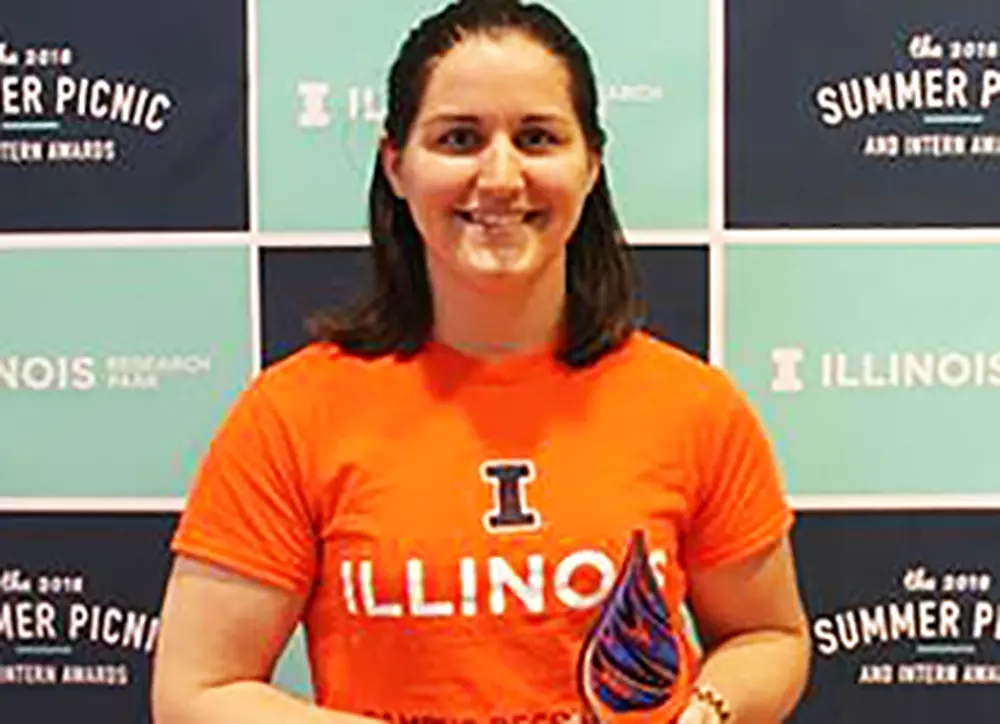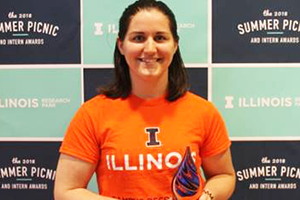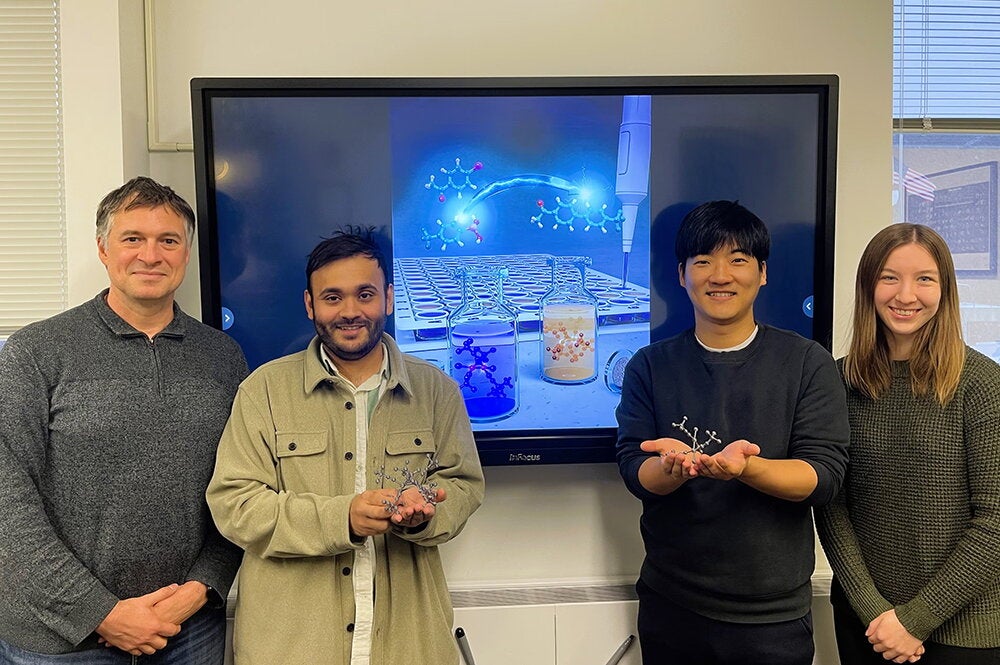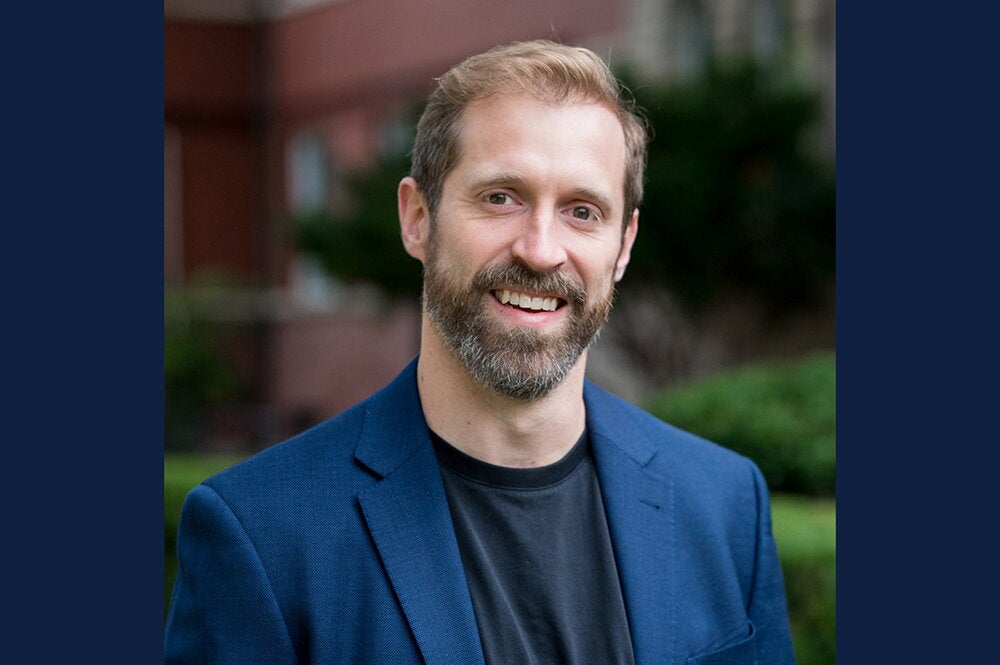

As a senior studying sociology and chemistry, Tonisha Thacker is used to people questioning her choice of majors, which on paper can seem like complete opposites.
“People are always like, ‘Why?’” she said. But her track record of success speaks for itself—recently, Thacker was named the Research Park’s most advanced marketing-business development intern out of around 500 Illinois students working in Research Park.
“I don’t feel like I did anything spectacular,” Thacker said. “It just felt like I went to work, did the best I could do, and somehow along the way got this award.”
As the communication and marketing intern for AARP’s Tech Nest, Thacker handles internal and external communication, manages social media, and organizes volunteer events among other tasks.
“Tonisha has been able to increase awareness about who we are and what we do at The Tech Nest through her work and social media posts (both internally and externally),” said Miranda Kemp, director of the AARP Tech Nest. “She has also helped establish a strong view of AARP in our local community with the volunteer events that she is organizing.”
One of Thacker’s more time-consuming projects involved creating a Wikipedia-like system that documents the Tech Nest’s technological projects and acts as a reference point for new projects. Thacker said most projects taking place in the Tech Nest are geared toward solving issues AARP’s membership base might face, and utilize modern advancements such as machine learning, artificial intelligence, and virtual and augmented realities.
“One of the major problems facing the 50 and older population is they’re segregated off and they lose connections socially,” Thacker said. “We can use voice assisted technologies to rebuild these connections, create augmented realities to help people be more active, have more independence, and connect socially without having to be as mobile in the real world.”
Thacker grew interested in AARP’s Tech Nest because of her desire to one day work for a non-profit, though right out of college she hopes to go into research and development for consumer-packaged goods, a field that would cater to both her majors.
“For sociology, you need to be able to survey consumers, conduct social research studies, and see how they interact with products,” she said. “And then bringing them back into a lab environment, implementing those changes, and communicating with team members on a technological basis is all chemistry.”
Thacker believes that her studies in LAS have allowed her to explore new options rather than restrict her to what she “should” be doing.
“If you want to go out and try something new or combine two majors that on surface level have nothing to do with each other, you should do it,” she said. “Once you get out into the real world, all of that experience is going to help you. It doesn’t matter if you’re a computer engineer who’s also a dog trainer. All of that stuff is going to come in super handy and it’s going to be advantageous of you to have all of those experiences.”


